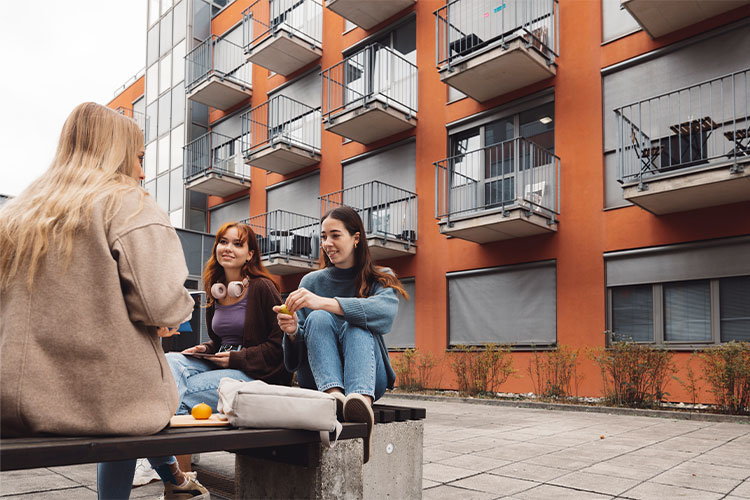Why Security Matters in Student Accommodation
It’s not just about locking doors at night—security in student housing is about giving you peace of mind so you can focus on your studies and enjoy student life.
Here are a few points to consider:
- Personal Safety: Students deserve to feel safe. Knowing that their accommodation has proper locks, alarms, and secure entry systems.
- Protecting Belongings: Students often invest much in their gadgets, books, and other personal items. Reasonable security measures help keep these safe.
- Community Trust: When everyone knows that security is taken seriously, trust is built among residents. You’re more likely to look out for each other.
- Reputation of the Property: For landlords and managers, a secure property attracts good tenants and builds a strong reputation in the community.
Common Security Challenges in Student Housing
We’ve seen firsthand the challenges that come with keeping student accommodations safe.
Some issues crop up over and over:
- Locking Mechanisms: Not all locks are created equal. Outdated or poorly maintained locks can be a real issue.
- Unauthorised Access: Unauthorised entry is a concern, whether it’s a visitor who overstays or someone breaking in.
- Shared Spaces: Common areas like kitchens and lounges in shared houses or residence halls can be vulnerable if not appropriately monitored.
- High Turnover: With students coming and going every term, keeping track of who is in and out can be challenging.
Security isn’t a one-time fix—it requires constant care and regular updates.
The Role of Landlords and Property Managers in Ensuring Safety
The people running student accommodation have a big part to play in keeping students safe.
- Regular Maintenance: Ensuring that all security systems and locking devices are in top condition is key.
- Clear Policies: Landlords should have clear rules about visitors and the use of common areas. This helps everyone know what is expected.
- Prompt Repairs: When something goes wrong—say, a door lock breaks—it needs to be fixed quickly. A fast response can prevent a small problem from turning into a big one.
- Open Communication: Keeping an open line of Communication with students helps identify potential problems before they become serious.
The role of these professionals is not just to manage a building; it’s about ensuring students feel secure every day.
Types of Student Accommodation and Security Considerations
The UK offers a variety of student housing options, and each comes with its own set of security needs.
Here’s a quick look:
- Halls of Residence:
- Pros: Often comes with security staff, controlled access, and CCTV in common areas.
- Cons: With many residents, privacy can be limited, and rules might feel strict.
- Private Rentals:
- Pros: More independence and the chance to pick a property in a preferred area.
- Cons: The quality of security can vary. Before you move in, it’s important to check that locks, alarms, and lighting are in good shape.
- Shared Houses:
- Pros: Sharing a house can mean cost savings; sometimes, residents look out for each other.
- Cons: Coordination is key. If one person forgets to lock up or a shared space isn’t properly monitored, everyone’s safety is at risk.
Always carry out a quick security check before signing any agreement. Ask about the measures in place and see if anything needs fixing.
Final Thoughts
When you think about student accommodation security, you’re not just considering locks and alarms. You’re thinking about the well-being of students. Keeping student homes safe requires regular care, a bit of teamwork between residents and managers, and a genuine commitment from everyone involved. Student accommodation security is at the heart of a safe, welcoming student experience. Whether you live in a hall of residence, a private rental, or a shared house, it’s essential to ask the hard questions about safety, stay alert to issues, and work with your landlords to keep your place secure.

